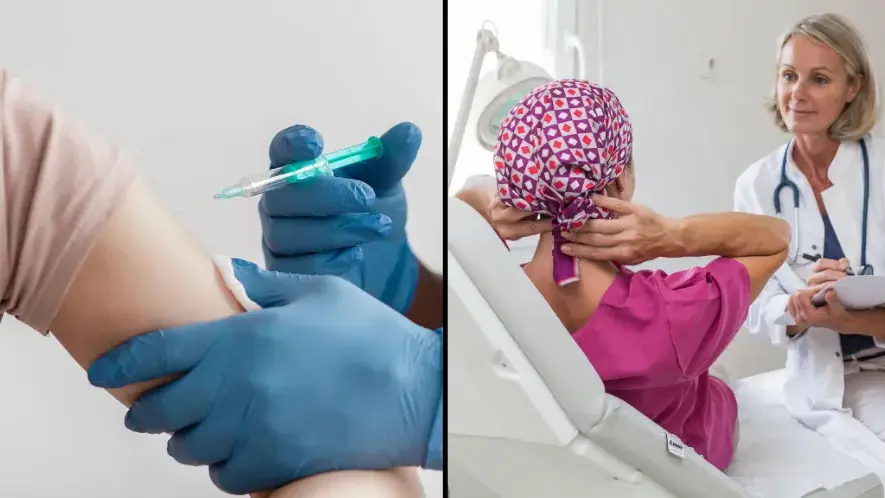
Groundbreaking research by a team of US doctors could be the breakthrough needed for a cancer cure.
Scientists have injected the first-ever human patient with a new cancer-killing virus called Vaxinia.
The drug has already proven to be successful in animal testing, so scientists and medical researchers have high hopes for what the results will be for humans.
So far, the oncolytic virus has been found to shrink colon, lung, breast, ovarian and pancreatic cancer tumours in animal trials.
Advert
The drug has been developed by a combined team from cancer research institutes Imugene Limited and City of Hope.
City of Hope oncologist Dr Daneng Li spearheaded the landmark research. He shared a statement to express his high hopes for the clinical trial.
"Our previous research demonstrated that oncolytic viruses can stimulate the immune system to respond to and kill cancer, as well as stimulate the immune system to be more responsive to other immunotherapies, including checkpoint inhibitors," Dr Li said.
Immunotherapy is a type of cancer treatment that boosts the body's natural defences to fight the mutated cells.
Dr Li added: "Now is the time to further enhance the power of immunotherapy, and we believe [Vaxinia] has the potential to improve outcomes for our patients in their battle with cancer."
The genetically modified virus is designed to infect, replicate in, and kill cancer cells while sparing the healthy cells.
Immune checkpoint inhibitors have previously proven effective in certain cancers but patients can often relapse or stop responding to treatment.
City of Hope's key developer of the genetically modified virus, Dr Yuman Fong, explained how the failures of other common cancer treatments are actually what makes Vaxinia so effective.
"Interestingly, the same characteristics that eventually make cancer cells resistant to chemotherapy or radiation treatment actually enhance the success of oncolytic viruses, such as [Vaxinia]," Dr Fong said in a statement.
"We are hoping to harness the promise of virology and immunotherapy for the treatment of a wide variety of deadly cancers."

The study will be carried out on 100 patients at roughly 10 trial sites across the United States and Australia.
To be involved in the trial, US and Australian cancer patients must have advanced solid tumours and have tried at least two other types of treatment to kill off the cancerous cells.
The treatment will either be delivered to patients involved in the trial as either an injection or intravenously.
Clinical trials are currently expected to complete by early 2025.
The latest research breakthrough comes only months after pharmaceutical company BioNTech moved on to its second stage of clinical trials for a vaccine called Libtayo.
The drug aims to stop people getting forms of cancer before cells have even started to mutate, stopping cancer in its tracks.